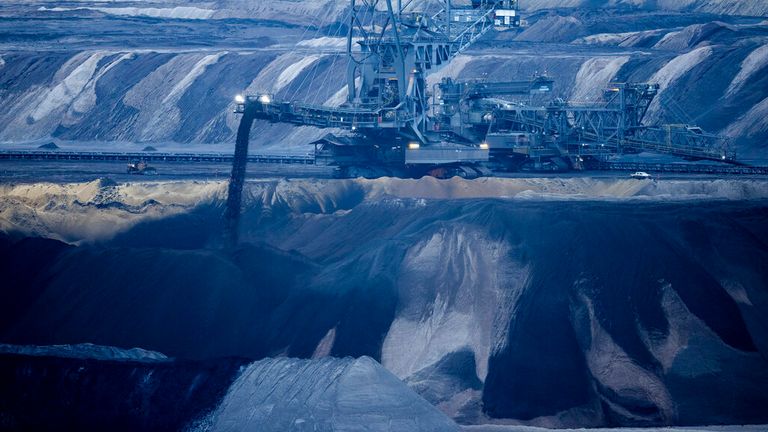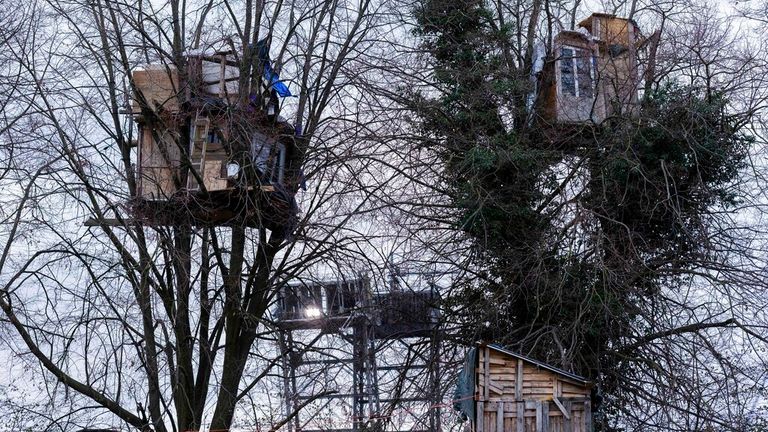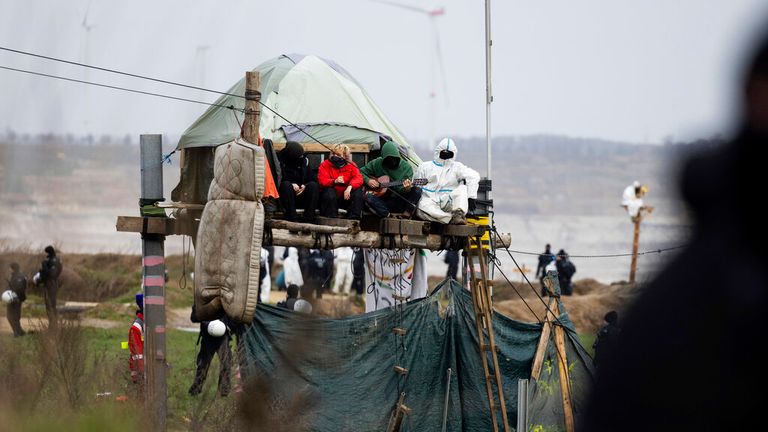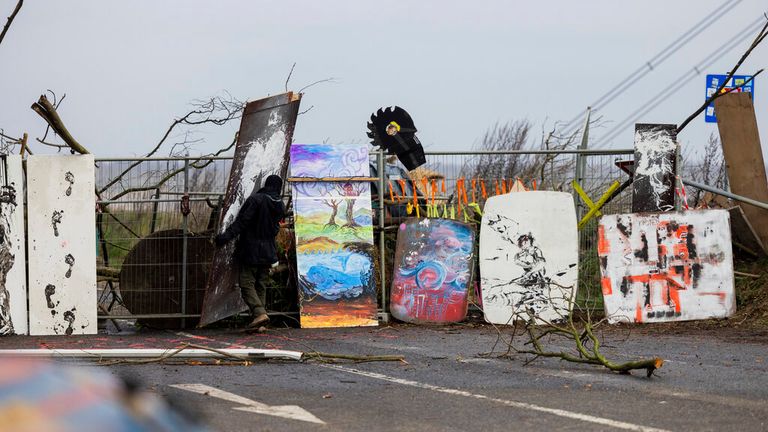Environmental activists occupying a German village set to be swallowed up by a coal mine have vowed to keep fighting as police prepare to evict them.
The village of Luetzerath in western Germany has been gradually abandoned by its original inhabitants as it is about to be demolished to make way for an extension of the Garzweiler II lignite mine.
The village is a few hundred meters from a vast pit where German utility giant RWE extracts lignite coal to burn in nearby power stations.
The fate of the village embodies the wider debate over Germany’s efforts to wean itself off coal, the dirtiest fossil fuel, by 2030, amid the gas crisis.
Environmentalists, who warn coal would release millions of tonnes of climate-warming carbon dioxide and harmful air pollution, moved into the abandoned homes of former residents two years ago.
The group LuetziBleibt – which translates to Luetzi remains – claimed that “around a few hundred people” were currently holed up in the village and expected more to join over the weekend.
“We want coal to stay in the ground because it threatens the basis of human civilization,” said Johanna Inkermann, spokeswoman for Luetzi is Staying.
“The climatic catastrophe being already there, already affecting the populations of the South hard, which did not cause [it]we demand a change in our current economic system,” she told Sky News by phone from the camp.
But the Heinsberg County administration gave the green light to the police to evict the occupants starting Tuesday, January 10. Activists expect police to start by fencing off the village to prevent more people from joining.
“We will certainly not be moved,” promised Ms. Inkermann.
“We will continue to stand up to the destruction that is happening here…we will defend this village and we will defend climate justice.”
Last summer, the German government said it had been forced to increase coal power, a “bitter but necessary” gesture to fill the void left by Russian gas cut off by President Vladimir Putin.
Ministers explored how to boost clean energy, with the aim of producing 80% of the country’s electricity from renewables by 2030.
The Department for Economic Affairs and Climate Action and mine operator RWE were not immediately available for comment, but the war in Ukraine last year amplified the importance of a secure supply of lignite coal for power stations.
A study by the German Institute for Economic Research (DIW) claims that lignite coal under Luetzerath was not needed to secure Germany’s electricity supply, even in the absence of Russian gas.
Protesters believe Germany can find ways to do without coal.
“It’s about making the grid more flexible and creating opportunities for energy storage,” as well as developing more renewable energy, Ms Inkermann said.
She said it was not the group’s responsibility to find alternatives, but to stop the expansion of the mine to protect people from climate change.
“After all,” she added, “the climate catastrophe isn’t waiting for this problem to be solved. And we don’t have time to burn more coal…we have to deal with multiple crises at the same time. “. And it’s totally possible.”
Watch the Daily Climate Show at 3.30pm Monday to Friday and The Climate Show with Tom Heap Saturday and Sunday at 3.30pm and 7.30pm.
All on Sky News, on the Sky News website and app, on YouTube and Twitter.
The show investigates how global warming is changing our landscape and highlights solutions to the crisis.





